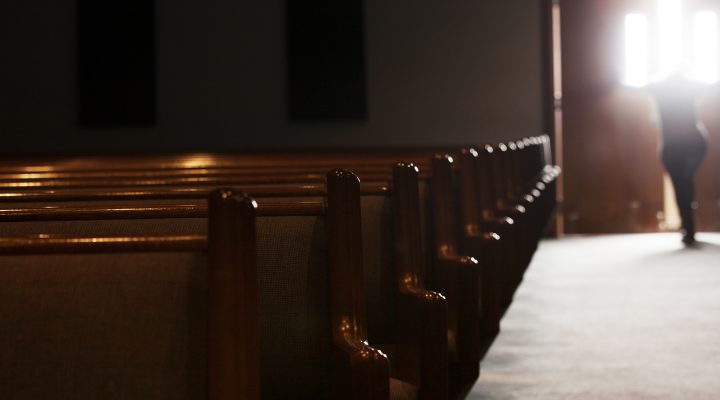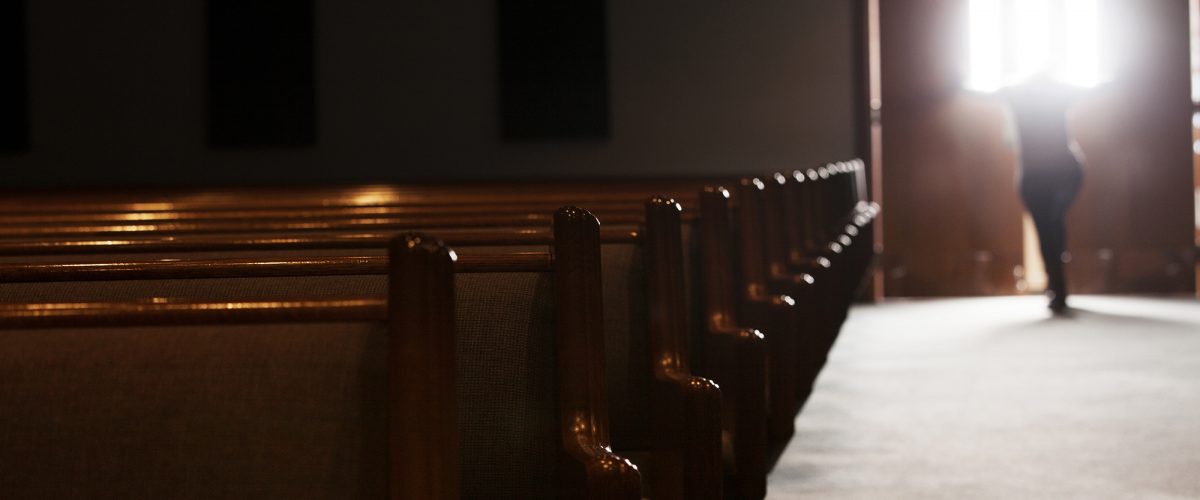A North Carolina judge has dismissed a lawsuit brought by 36 United Methodist churches seeking to leave the denomination without following its required exit process.
The dismissal holds broader implications for the slow-moving splintering of the worldwide denomination, which currently counts 6.5 million members in the United States.
According to a press release from the Western North Carolina Annual Conference, North Carolina Superior Court Judge Richard L. Doughton issued a ruling March 20 granting the annual conference’s motions to dismiss a lawsuit brought by 36 local churches seeking to leave the denomination. The lawsuit was filed against the annual conference, its board of trustees and Bishop Kenneth H. Carter Jr., by the National Center for Life and Liberty, representing the 36 churches.
Although details weren’t given in his decision from the bench, Judge Doughton apparently agreed with the conference’s two dismissal motions. The motions involved a question of legal standing and an argument that the lawsuit violates Western North Carolina Conference’s First Amendment rights to religious practice.
“We are grateful for this ruling, which further sustains the separation of church and state jurisprudence.”
“We are grateful for this ruling, which further sustains the separation of church and state jurisprudence, especially for matters already resolved by The United Methodist Church’s internal church government’s adjudicative process,” said the Western North Carolina statement.
A call to Bishop Carter for further comment was not returned.
The dismissal has broader implications for similar actions against UMC annual conferences, which are the regional units through which churches seeking to depart must work. Lawsuits are pending in Florida and Missouri, while a Wisconsin lawsuit was dismissed in federal court earlier this year. A multi-million-dollar lawsuit brought by Mount Bethel Church against the North Georgia Annual Conference was settled last June, with Mount Bethel agreeing to pay North Georgia $13.1 million for its property in Marietta, Ga.
Over the past nine months, more than 2,000 of the 30,000 U.S. United Methodist churches have exited the denomination — largely over LGBTQ acceptance. Accounting for additional churches closed because of declining membership, The United Methodist Church has lost its claim to having a congregation in all 3,143 U.S. counties, according to religion researcher Ryan Burge.
Disaffiliating churches are required to follow a process outlined in Paragraph 2553 of the United Methodist Book of Discipline, the collection of church rules. Since all United Methodist real property is held “in trust” by local churches for their annual conferences, the authorized process requires local churches to pay two years’ worth of ministry financial support and clergy pension contributions to retain church property when they leave.
Each annual conference also is permitted under Paragraph 2553 to set additional requirements for church departures depending on their regional contexts. For example, in the Florida Annual Conference, covering the state from Key West to Tallahassee, disaffiliating churches are required to provide proof of insurance — a pricey obligation in the wake of recent catastrophic damage from Hurricane Ian.
In many cases, the financial cost of disaffiliation is more than churches can bear, since few have large amounts of unencumbered savings from which to draw. The majority of the 36 North Carolina churches are described as predominantly white, rural and theologically conservative, reflecting the overall profile outlined by church leadership expert Lovett H. Weems Jr. in research published March 1.
The National Center for Life and Liberty, located in Largo, Fla., north of St. Petersburg, also represents 70-plus local churches in a lawsuit against the Florida Annual Conference. David C. Gibbs III is listed as president and general counsel for the center, which lists “church liberties, parental liberties, individual liberties and issues of life” as its concerns.
The Wesleyan Covenant Association, a traditionalist organization that has promoted disaffiliation, on Feb. 28 described the legal issues in the Florida case as “claims that the Florida Conference allegedly violated multiple secular statutes regarding trust law and fiduciary requirements.” Bradford County Circuit Judge George Wright heard motions on the Florida case Feb. 21 but said he reserved a decision until he could consider details.
Western North Carolina Bishop Carter also was named as a party to the Florida lawsuit. Carter previously served as bishop for both Florida and Western North Carolina but was assigned in November to serve solely in Western North Carolina, which covers the state’s mountainous western region from Charlotte to the northern state line. Newly elected Bishop Thomas Berlin now leads the Florida Conference but apparently hasn’t been substituted for Carter in the disaffiliation lawsuit.
Western North Carolina will hold a special session May 6 to vote on possibly as many as 190 churches that fulfill exit requirements. Thus far, 41 Western North Carolina churches have been granted permission to leave the UMC. This week, Carter announced a second special session for Saturday, Nov. 4, to vote on other departures of churches that file letters of intent to disaffiliate by July 1. Churches also will be required to hold a vote by members on disaffiliating by Sept. 15. A special meeting of the clergy session of the annual conference will be held one hour before the conference gathering to vote on clergy withdrawals submitted by Aug. 1.
Similar special sessions focused solely on disaffiliation requests have been scheduled in 30 U.S. annual conferences throughout 2023. The exiting provisions of Paragraph 2553 will expire Dec. 31. Starting Jan. 1, 2024, churches can still leave the UMC, but the process will be much longer and more involved than currently.
Related articles:
Sociologists find LGBTQ United Methodists, allies stay in UMC out of hope


